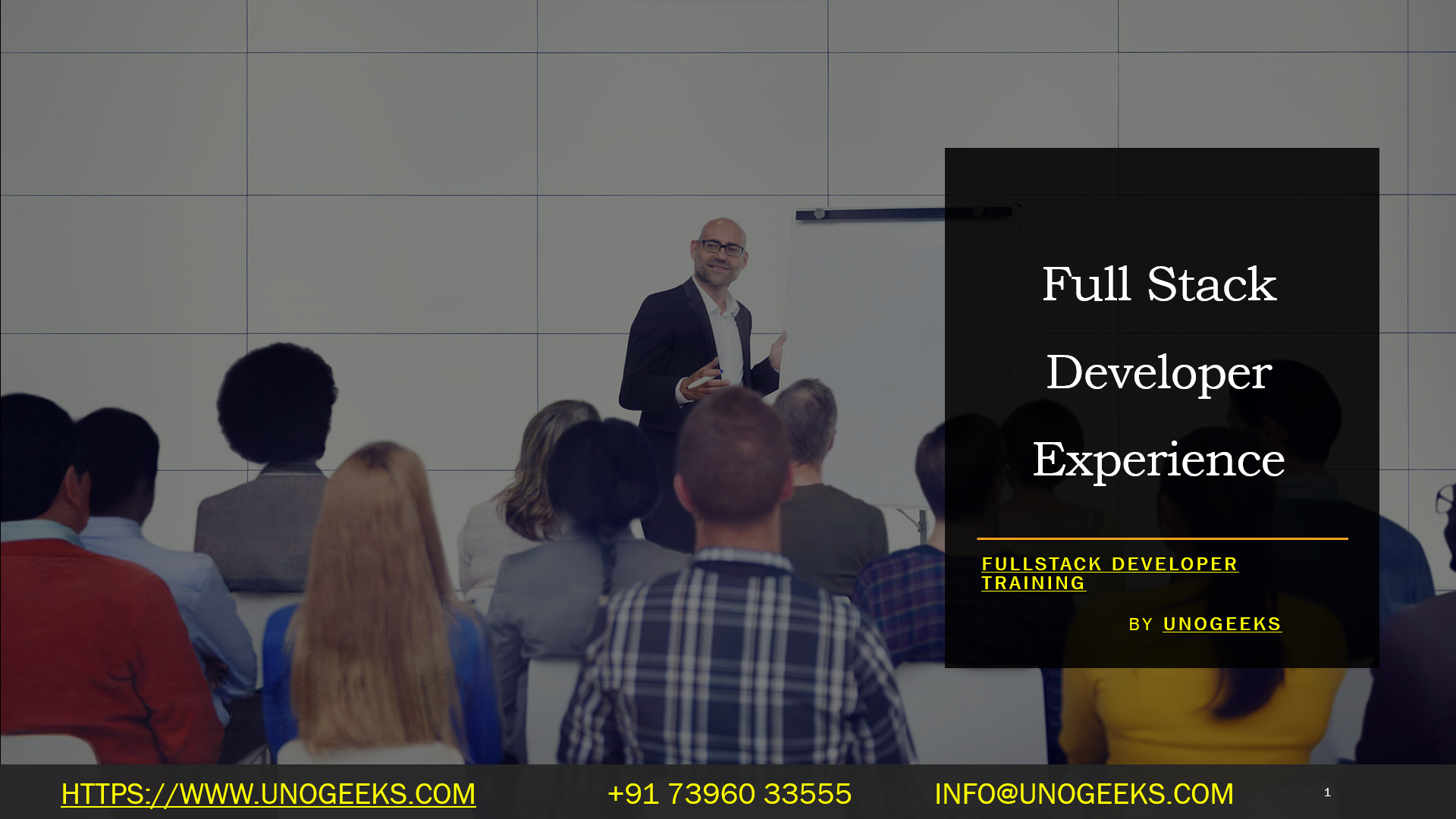Full Stack Developer Experience
Full Stack Developer Experience
Full Stack Developer Experience typically refers to the professional background and expertise of a developer who specializes in both front-end and back-end web development. Here are some common aspects of a Full Stack Developer’s experience:
- Programming Languages: Full Stack Developers have experience with a range of programming languages, including but not limited to:
- Front-End: HTML, CSS, JavaScript, TypeScript.
- Back-End: Python, Java, Ruby, PHP, Node.js, C#, etc.
- Front-End Technologies: They are proficient in front-end technologies such as:
- JavaScript Frameworks and Libraries: React, Angular, Vue.js, jQuery, etc.
- HTML/CSS Frameworks: Bootstrap, Material-UI, Semantic UI, etc.
- Responsive Design: Creating web applications that work well on various devices and screen sizes.
- Back-End Development: Full Stack Developers have experience building server-side components of web applications. They work with databases, server logic, APIs, and other back-end technologies.
- Databases: They are skilled in working with databases, including relational databases (e.g., MySQL, PostgreSQL, Oracle) and NoSQL databases (e.g., MongoDB, Redis).
- Web Frameworks: Proficiency in web frameworks such as Django, Ruby on Rails, Laravel, Express.js, Flask, Spring Boot, etc., for building back-end services.
- API Development: Creating RESTful or GraphQL APIs to enable communication between the front-end and back-end components of the application.
- Version Control: Using version control systems like Git for code management, collaboration, and tracking changes over time.
- Testing: Conducting unit testing, integration testing, and end-to-end testing to ensure the reliability and correctness of the application.
- Security: Implementing security best practices, including protection against common web vulnerabilities like SQL injection, Cross-Site Scripting (XSS), and Cross-Site Request Forgery (CSRF).
- Deployment and DevOps: Experience with deploying web applications to production environments, often involving cloud platforms like AWS, Azure, or Google Cloud. Knowledge of containerization (e.g., Docker) and orchestration (e.g., Kubernetes) is a plus.
- Performance Optimization: Optimizing web applications for speed, scalability, and efficient resource usage.
- CI/CD (Continuous Integration/Continuous Deployment): Setting up CI/CD pipelines for automated testing and deployment of code changes.
- Project Management: Some Full Stack Developers take on project management roles, overseeing the development process, scoping, estimating, and ensuring projects are delivered on time and within budget.
- Communication and Collaboration: Effective communication and collaboration skills, as they often work closely with designers, product managers, and quality assurance (QA) engineers.
- Continual Learning: Staying up-to-date with the latest web development trends, tools, and best practices is essential for a Full Stack Developer to remain effective in their role.
Full Stack Developer Training Demo Day 1 Video:
Conclusion:
Unogeeks is the No.1 IT Training Institute for Full Stack Developer Training. Anyone Disagree? Please drop in a comment
You can check out our other latest blogs on Full Stack Developer Training here – Full Stack Developer Blogs
Please check out our Best In Class Full Stack Developer Training Details here – Full Stack Developer Training

———————————-
For Training inquiries:
Call/Whatsapp: +91 73960 33555
Mail us at: info@unogeeks.com
Our Website ➜ https://unogeeks.com
Follow us:
Instagram: https://www.instagram.com/unogeeks
Facebook:https://www.facebook.com/UnogeeksSoftwareTrainingInstitute
Twitter: https://twitter.com/unogeeks
